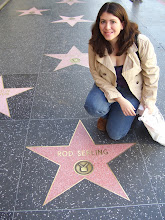Over winter break I was watching one of my little cousins and she turned Sesame Street on. It instantly made me feel really old because I didn't recognize it at all. It has changed so much in the 15 or so years since I watched it. I don't think it changed for the better, either. I remember the Sesame Street of my childhood being much more educational than what my cousin was watching. This definitely is a problem for PBS.
As stated in the article, their shows are not high quality television by any stretch of the imagination. I don't watch PBS- ever. I did watch one of their Frontline documentaries for a class once, but I watched it online. I also wouldn't have watched it if it wasn't assigned. PBS really needs to get rid of all of the ridiculous programming that they have to get a larger viewership.


